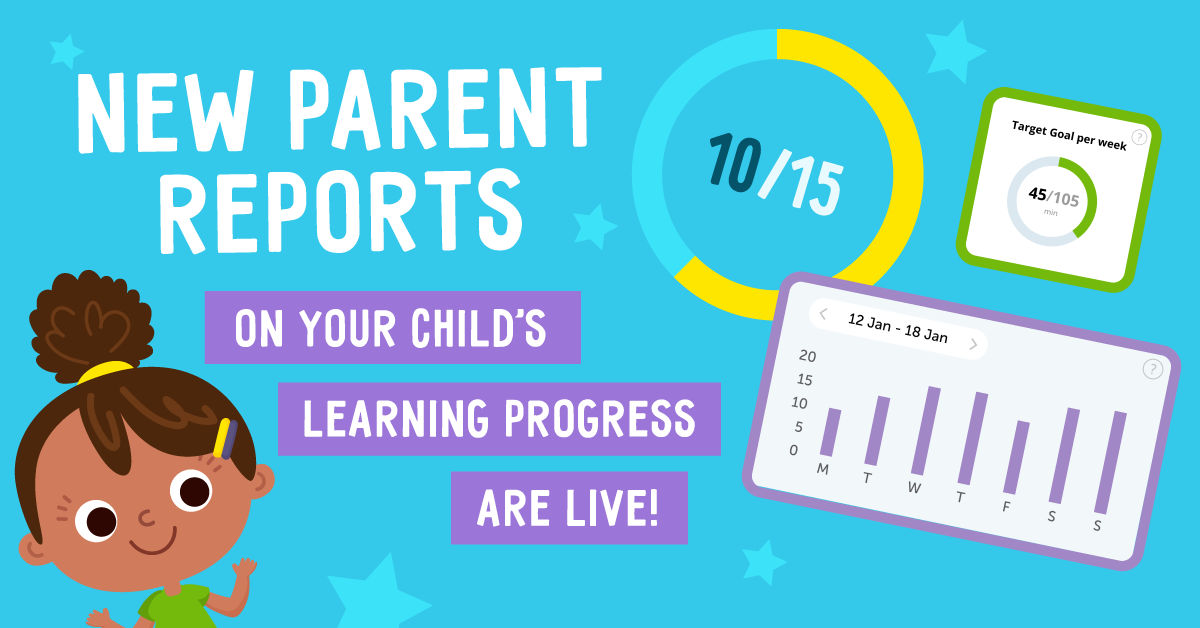Enhancing observational skills Normal Worksheets for Ages 3-7
7 filtered results
-
From - To
Boost your child's observational prowess with our specialized worksheets designed for ages 3-7. These engaging and fun activities help young learners sharpen their attention to detail, identify patterns, and recognize differences in everyday scenarios. Each worksheet is thoughtfully created to strengthen critical thinking and visual perception skills, making learning an enjoyable experience. Perfect for preschool and early elementary children, these resources are ideal for both classroom and home use. Foster your child's curiosity and watch their cognitive abilities flourish with our expertly crafted observational skills worksheets. Explore our collection today and give your child a head start in learning!
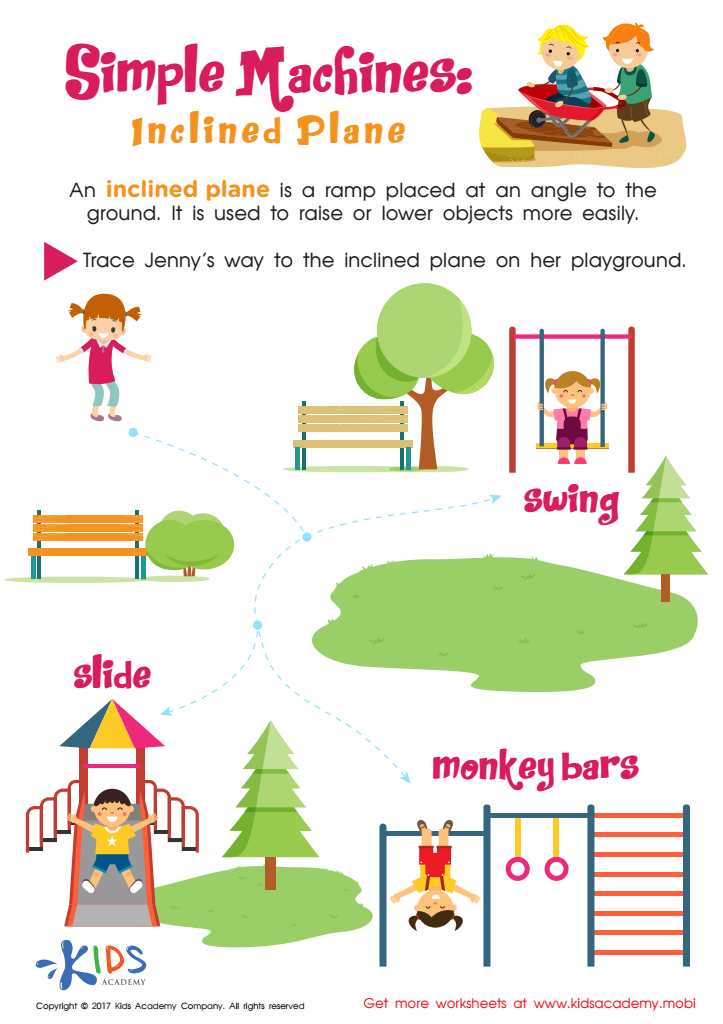

Simple Machines Inclined Plane Worksheet
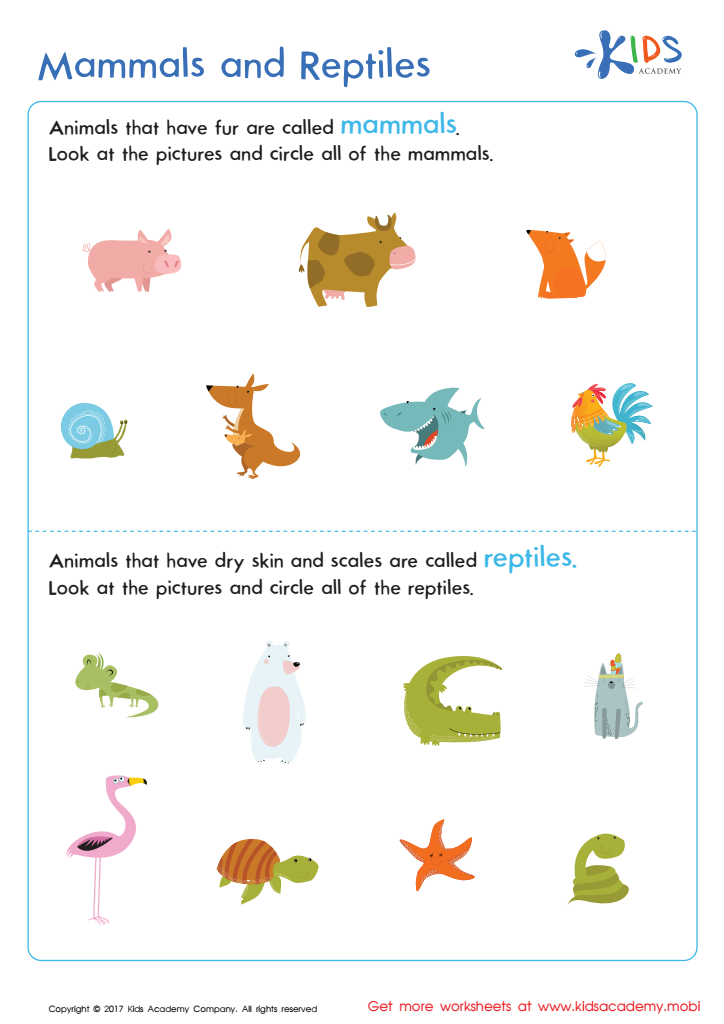

Mammals and Reptiles Worksheet
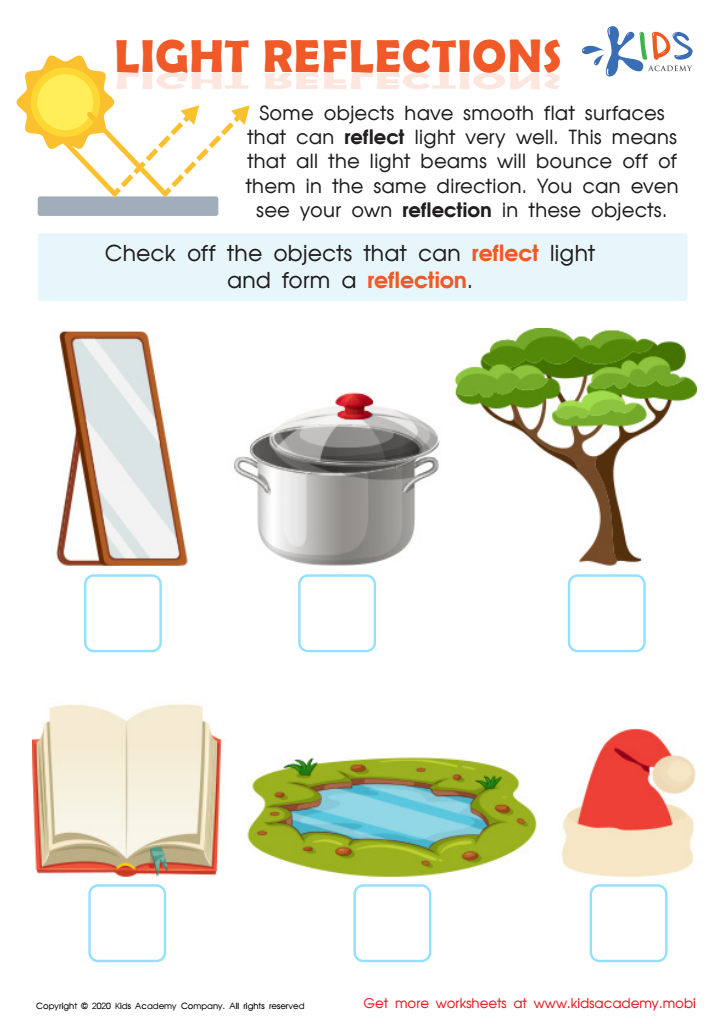

Light Reflections Worksheet
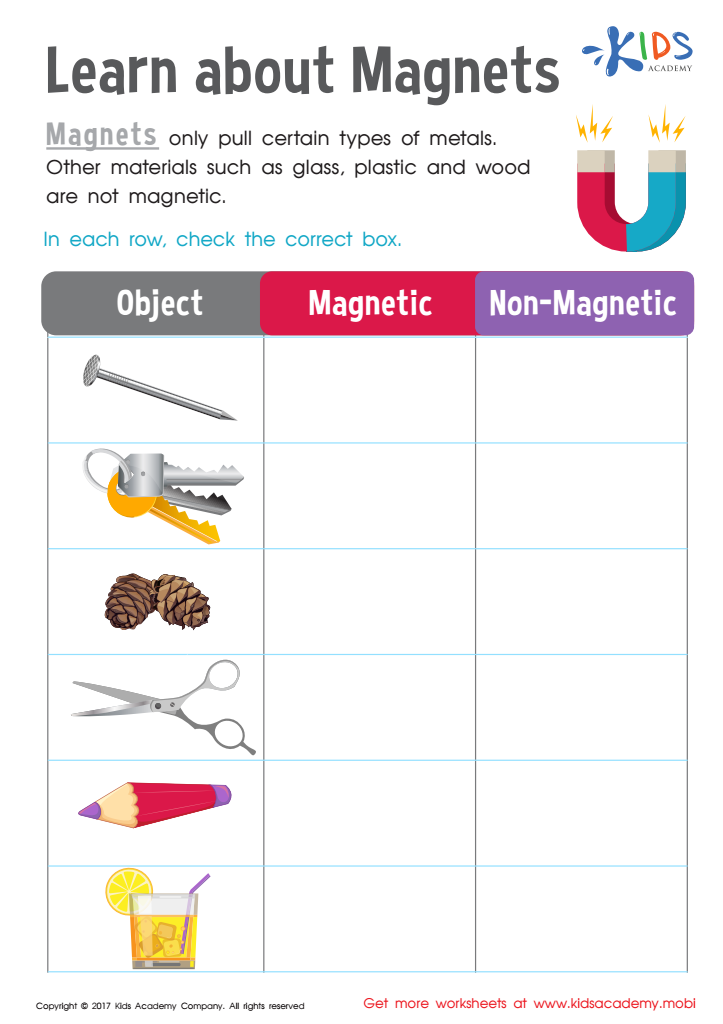

Magnetic Or Not Worksheet
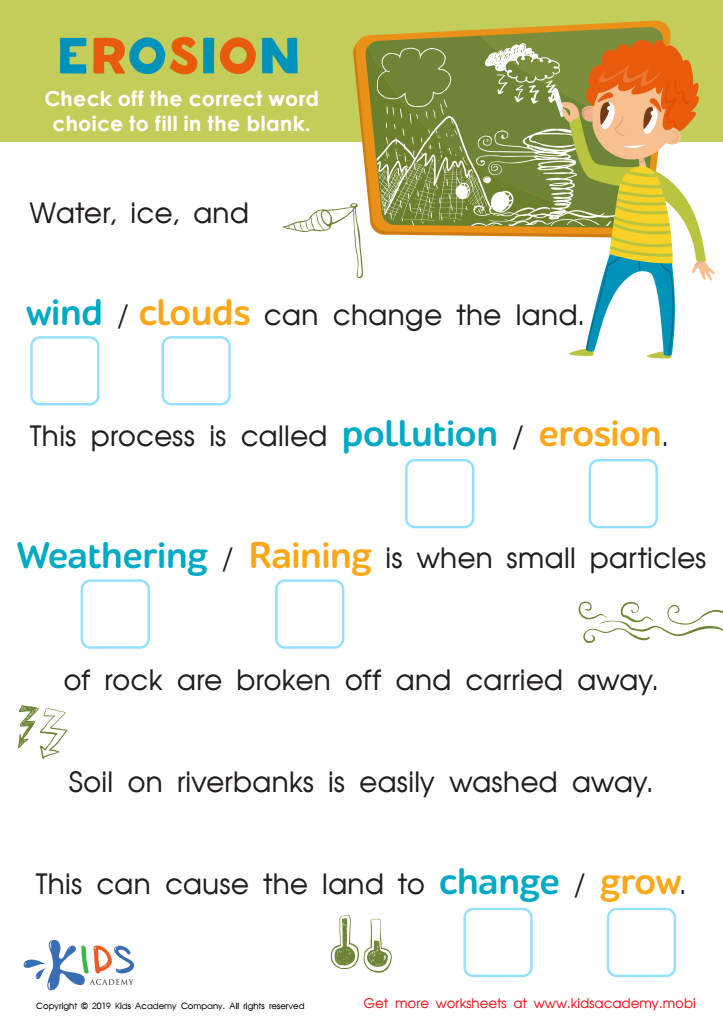

Erosion Worksheet
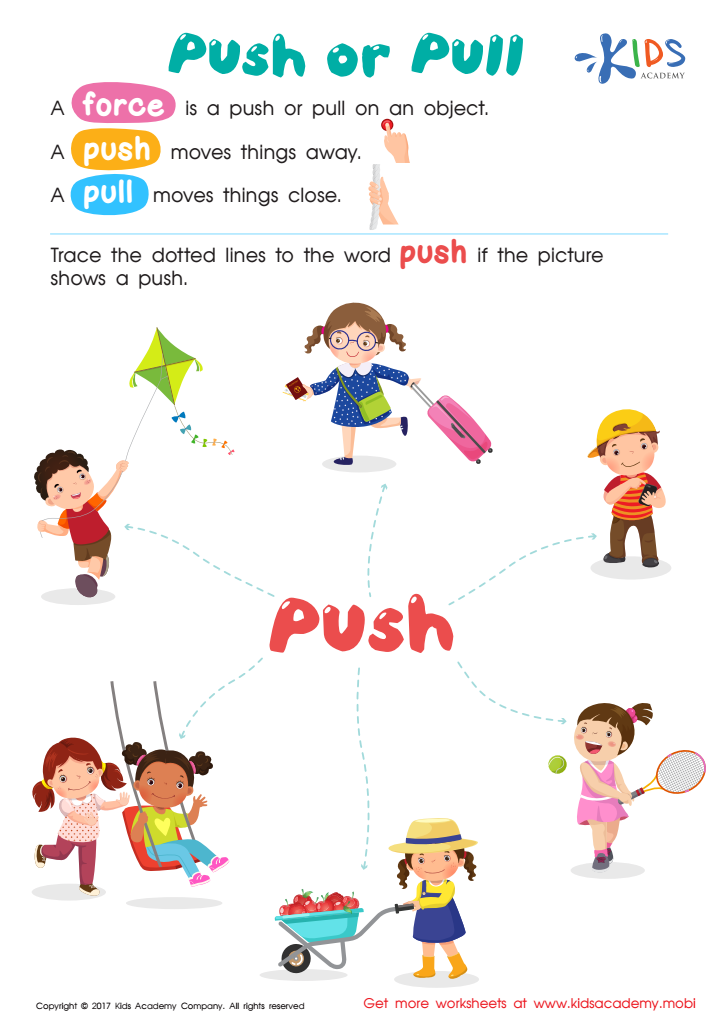

Push or Pull Worksheet
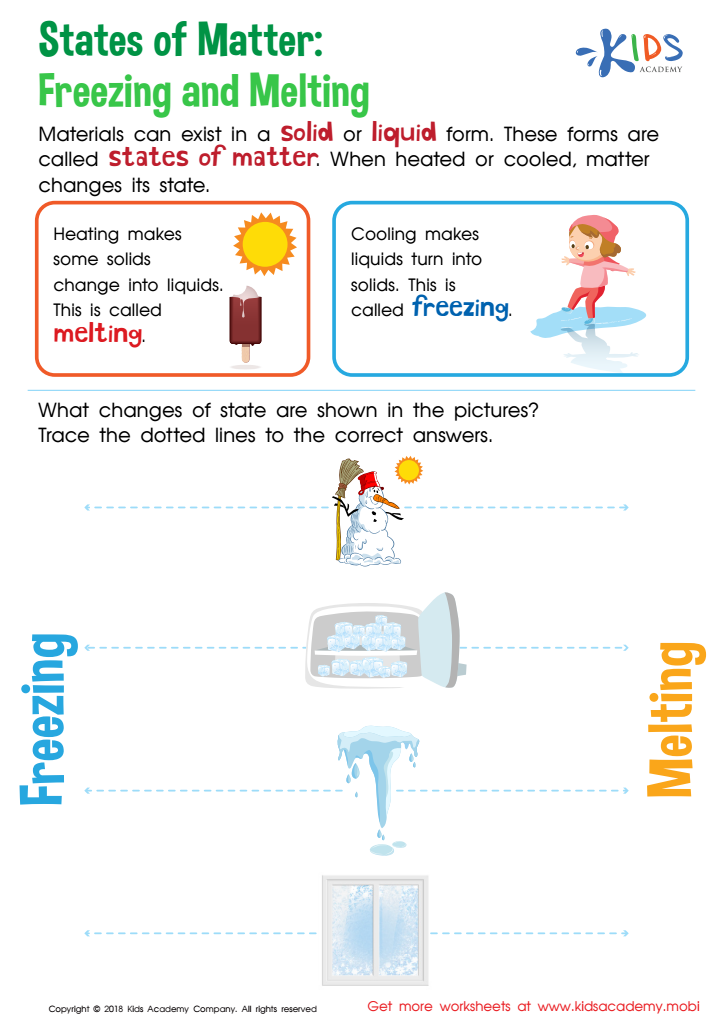

States of Matter: Freezing and Melting Worksheet
Enhancing observational skills for children aged 3-7 is vital for their cognitive and perceptual development. At this formative age, children are naturally curious and absorb information like sponges. By nurturing their ability to observe, parents and teachers help children develop critical thinking, attention to detail, and the ability to make sense of the world around them.
Strong observational skills lay the foundation for learning in all subjects. In science, for example, children learn to notice and describe changes in their environment, fostering a scientific mindset. In mathematics, they recognize patterns and differences, which are crucial for numerical understanding.
Additionally, observational skills enhance social development. When children pay close attention to social cues and interactions, they become more empathetic and better at understanding others' emotions and perspectives. This fosters healthier relationships and communication abilities.
Moreover, these skills support creativity and problem-solving. An observant child sees innovative solutions and appreciates beauty in their surroundings, sparking creativity and imagination.
Lastly, enhancing these skills can identify any developmental issues early. Parents and teachers who keenly observe a child's behavior and reactions can promptly address potential concerns, ensuring timely support.
In summary, prioritizing observational skills from ages 3-7 equips children with essential tools for comprehensive learning and overall development. It helps them understand the world, themselves, and others, paving the way for future success.
 Assign to My Students
Assign to My Students






